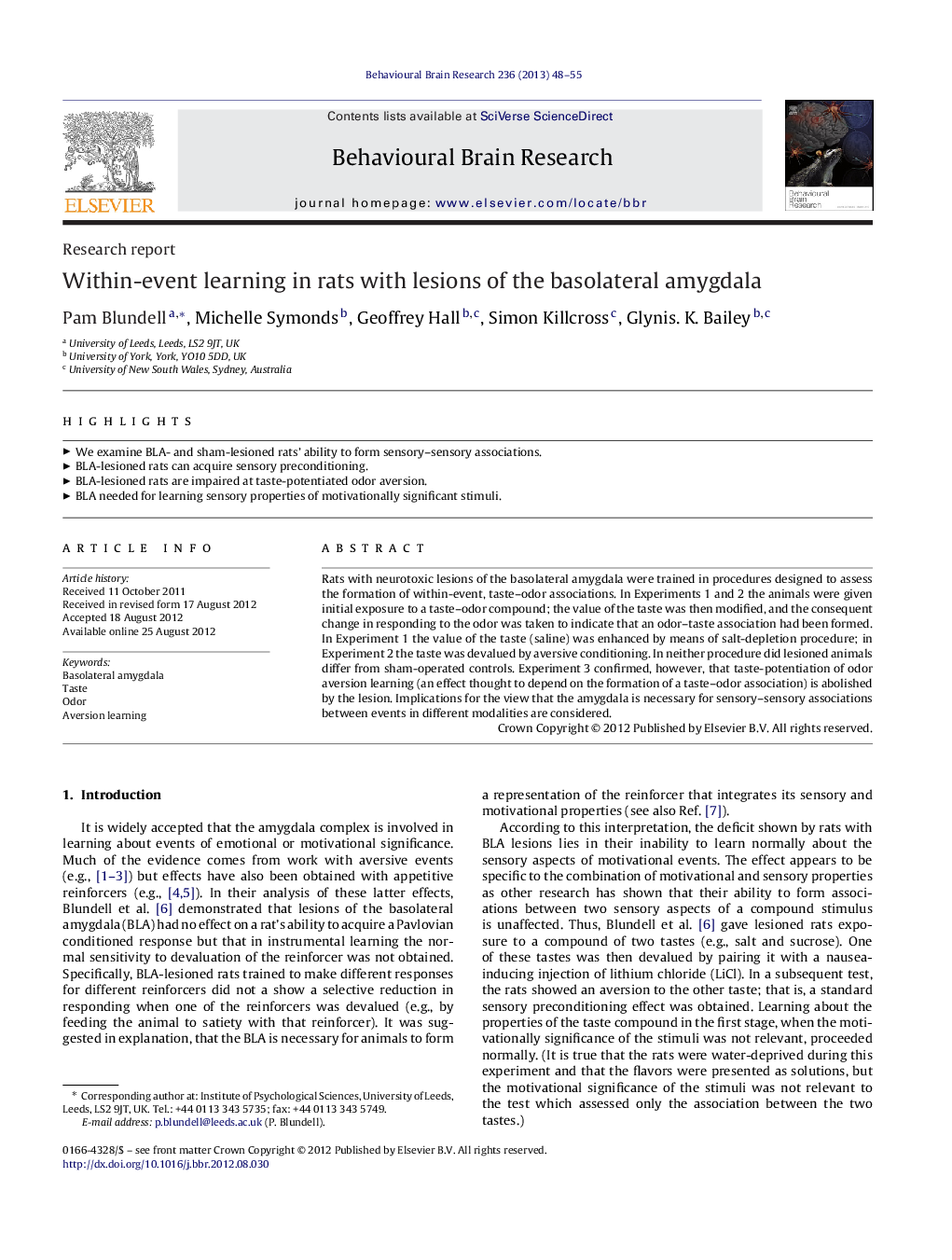| Article ID | Journal | Published Year | Pages | File Type |
|---|---|---|---|---|
| 6259434 | Behavioural Brain Research | 2013 | 8 Pages |
Rats with neurotoxic lesions of the basolateral amygdala were trained in procedures designed to assess the formation of within-event, taste-odor associations. In Experiments 1 and 2 the animals were given initial exposure to a taste-odor compound; the value of the taste was then modified, and the consequent change in responding to the odor was taken to indicate that an odor-taste association had been formed. In Experiment 1 the value of the taste (saline) was enhanced by means of salt-depletion procedure; in Experiment 2 the taste was devalued by aversive conditioning. In neither procedure did lesioned animals differ from sham-operated controls. Experiment 3 confirmed, however, that taste-potentiation of odor aversion learning (an effect thought to depend on the formation of a taste-odor association) is abolished by the lesion. Implications for the view that the amygdala is necessary for sensory-sensory associations between events in different modalities are considered.
⺠We examine BLA- and sham-lesioned rats' ability to form sensory-sensory associations. ⺠BLA-lesioned rats can acquire sensory preconditioning. ⺠BLA-lesioned rats are impaired at taste-potentiated odor aversion. ⺠BLA needed for learning sensory properties of motivationally significant stimuli.
